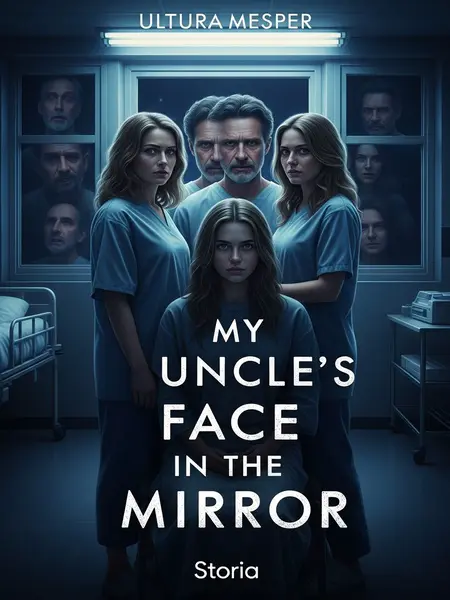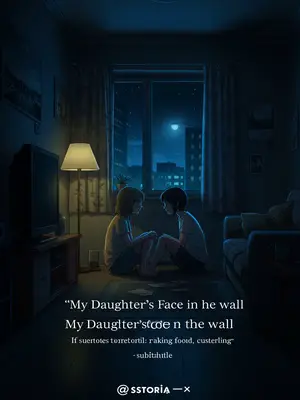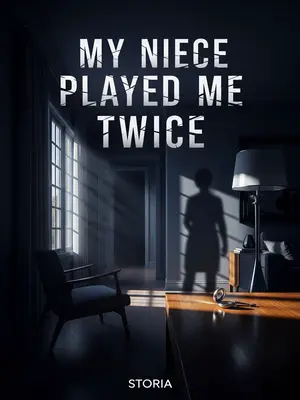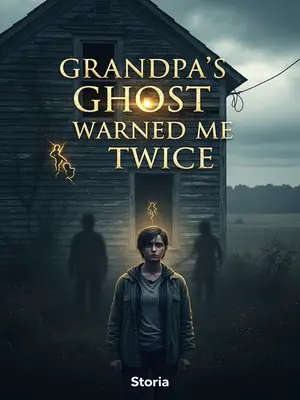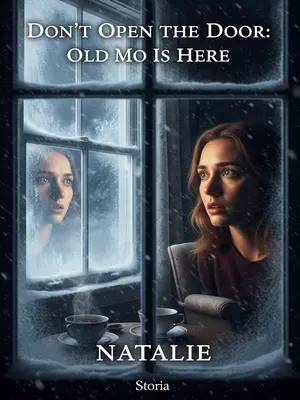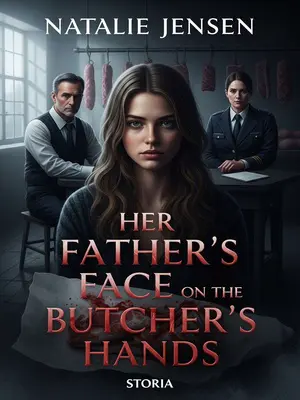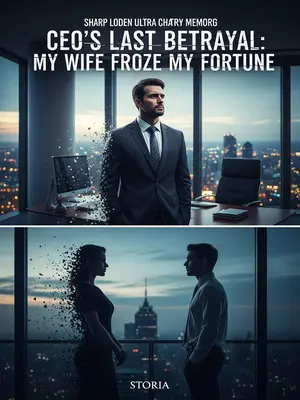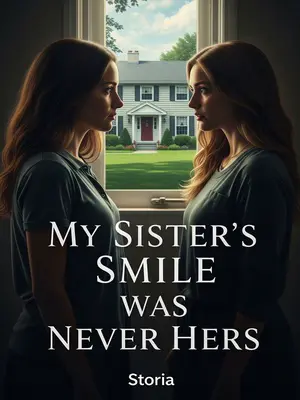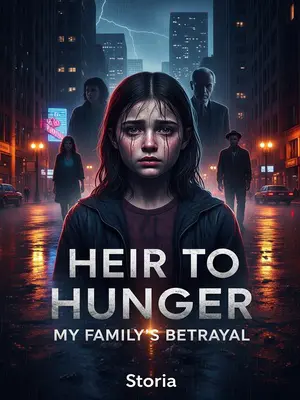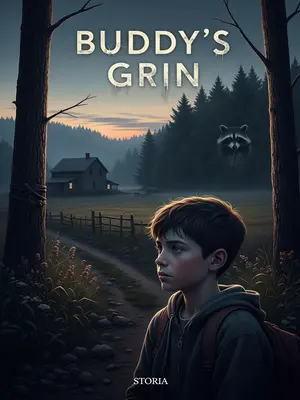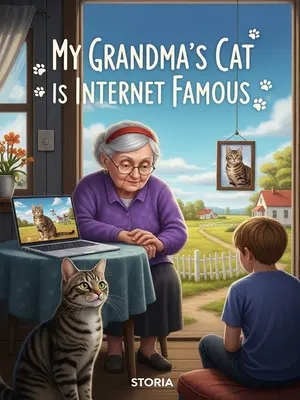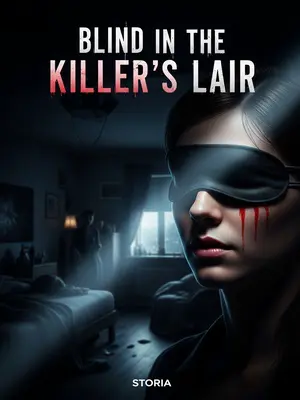Chapter 2: The Rules of Survival
The hospital was in chaos.
People rushed around, cell phones out, voices overlapping in confusion and terror. A fire alarm trilled somewhere in the distance, nurses and doctors forming a human barricade in front of the elevator as security tried to take control. The smell of panic—sweat, blood, fear—filled the air, thick as humidity before a summer storm.
Everyone was talking at once:
"What’s going on?"
"Did the elevator cut someone in half?"
The crowd surged, all eyes fixed on the elevator doors. Cell phones flashed, recording every second. There was that weird American urge to document the horror for TikTok and Twitter, even as people shook with fear.
Someone immediately objected:
"That’s impossible! Elevators have sensors for that."
"Look at that cut—it’s too clean."
"Even a top surgeon couldn’t cut so precisely."
People started whispering about a deranged killer in the building.
Rumors spread fast—like wildfire in dry brush. Some swore it was a rogue doctor, others murmured about an escaped patient or a serial killer. You could practically hear the word "lawsuit" whispered in the corners.
Otherwise, how could someone be split so cleanly in two?
I saw a paramedic shaking his head, muttering, "No way, man. No way. You’d need a laser or something for that." People’s faces were pale, jaws clenched, everyone eyeing their neighbors with suspicion.
I didn’t have time to listen to their theories.
I ducked out of the huddle, weaving between gurneys and scattered chairs. My mind was already ten steps ahead, heart racing as I replayed the image of that bisected body—knowing this was no ordinary human crime.
That thing always acts like this.
My breath hitched. The pattern was horrifyingly familiar. I remembered every grisly detail from the Amtrak, the way the thing hunted and killed without hesitation.
Before, when my Uncle Ben and I took the Amtrak home, people on the train were split in two just like this.
The memory was sharp and painful—Uncle Ben’s laughter, the hum of the rails, and then the carnage, blood spattering the vinyl seats. I flinched, the phantom taste of copper on my tongue.
Even my Uncle Ben wasn’t spared.
The hair on my arms stood up. I remembered the way Uncle Ben used to ruffle my hair, the smell of his aftershave—gone now, replaced by something cold and wrong. The image haunted me, burned behind my eyelids. No one had believed me when I’d tried to explain.
Later, when the train stopped, I was sent to the hospital.
The authorities grilled me, asking the same questions over and over. I’d been shuttled from one bland hospital room to the next, treated more like a suspect than a survivor.
But I wasn’t really hurt—just deeply traumatized.
Wounds you can’t see always heal slowest. The doctors checked my vitals, prescribed sleep meds, and sent me home. But the nightmares kept coming, the sense that I’d never really left that train.
Now, the hospital felt exactly like the Amtrak back then:
The smell of bleach, the cold white lights, the sense that escape was impossible. The difference was, this time, I wasn’t alone. My mom was here—and I would do anything to protect her.
A sealed environment.
Locked doors. Security guards everywhere. No way out.
An invisible killer.
I could feel its presence, like a shadow moving just out of sight. Every time I closed my eyes, I saw those too-long limbs, the distorted human face.
A panicked crowd.
Fear travels faster than any virus. People’s faces twisted with confusion and dread, their voices rising, desperate for answers that wouldn’t come.
I rushed down from the third floor.
I elbowed past a pair of EMTs, my hospital gown flapping behind me. The stairwell reeked of bleach and sweat. My legs ached, but adrenaline drove me forward.
My mom was sitting on a chair in the infusion area on the second floor, still clutching the package.
She looked small, folded in on herself, the roast beef sandwich wrapped tight in her lap, her knuckles white. Her eyes scanned the crowd, searching for me.
"You’re okay? Then why are you in the hospital? I was so worried about you."
She reached for me, hands trembling, eyes shining with relief and fear. I watched her try to pull herself together, that fierce mom energy kicking in even when she was terrified.
I hurried to reassure her:
I put on my best fake smile, trying to sound calm. "It’s nothing. The doctor said I was just badly shaken up. And since someone’s covering the costs, I’m just resting here for a few days."
I was about to pull my mom away when I noticed the place was sealed off.
Uniformed security clustered at the exits, their radios crackling. The usual hospital bustle had been replaced by tense, watchful silence. The sense of being trapped pressed in, thick as fog after a rainstorm.
A group of people in black stood at the stairwell.
They looked out of place—like federal agents from a TV crime show, all matching suits and mirrored sunglasses. Their presence made everyone nervous.
Their leader was a striking woman in a black leather jacket and sunglasses, radiating authority.
She moved with confidence, her posture military-straight. She barked orders into a walkie-talkie, her voice crisp and low. A gold badge clipped to her hip glinted under the harsh fluorescent lights.
She looked around and spoke a few words into her walkie-talkie.
I strained to catch her words—something about containment, safety protocols, backup teams. Her tone brooked no argument. The air around her buzzed with tension.
Soon, an announcement echoed through the hospital:
"Attention, patients. I am the director of this hospital. Due to a sudden public safety incident, the hospital will be temporarily closed. Please do not wander around. If you need anything, please contact the personnel in black at the stairways."
Her voice came through the loudspeakers, calm but firm. You could tell she wasn’t giving suggestions—she was issuing orders. People craned their necks, looking for someone to blame, someone to save them.
Many people were unhappy with this announcement.
The complaints started quietly at first, then grew louder. The American urge to question authority flared, fueled by fear and frustration.
Some began to protest:
A young woman in scrubs raised her voice, "My shift’s over! I need to pick up my daughter!" Others chimed in, their voices echoing off the sterile tile.
"What’s going on? Why won’t you let us out? I have things to do!"
A burly man strode up to the stairway and loudly confronted the people in black:
His name tag read ‘Kyle.’ He stomped over, fists clenched, radiating that blue-collar defiance only found in small-town bars after closing time.
"Why won’t you let me leave?"
One of the black-clad men replied, expressionless:
His voice was flat, unyielding. "We’re protecting you."
The big man sneered:
He looked around, trying to rally support. "Yeah, right. Who do you think you are? I’ll go wherever I want. I don’t need your protection."
He started to head down the stairs.
"Don’t move."
The woman in the leather jacket drew her gun and pointed it directly at him.
Her hand was steady, her voice icy. The crowd gasped, several people raising their phones to film. The sight of a gun in a hospital made the air snap with tension.
"This is a federal operation. If you try to leave or interfere, you’ll be detained. Don’t test me."
Someone muttered, “This is some X-Files crap,” and a few nervous laughs rippled through the group, desperate for anything normal.
The big man’s legs shook with fear and he slunk back to his seat.
He sat heavily, suddenly small. The message was clear: no one was leaving. The room went quiet, people looking at each other, weighing their chances.
The woman’s actions sparked even more discussion among the crowd:
A woman in a Cleveland Browns hoodie whispered, "What on earth is happening?" Another man, business suit rumpled, muttered, "First they lock us in, now they’re threatening to shoot us. Unreal."
"What kind of country is this, where someone can just pull out a gun?"
Some people looked pale:
A couple of teens huddled together, eyes wide. An old man shook his head, muttering about government conspiracies. The sense of unreality grew thicker.
"Something big must have happened. Didn’t you hear her say ‘Special Operations Team’? Probably some secret government department."
Many people found this explanation believable.
Paranoia crackled through the crowd. In America, secret government teams were the stuff of both nightmares and Netflix binges. Everyone had an uncle who claimed to have seen something, once.
Only I turned even paler.
Because I knew the truth. My hands shook, the sense of dread gnawing at my insides. These agents weren’t here for a drill—this was real, and it was worse than anyone imagined.
The appearance of the people in black meant they’d already confirmed it was here.
I scanned their faces, searching for any hint of reassurance. There was none. They moved with purpose, weapons drawn, every muscle tensed for action.
This time, they’d switched from tasers to real firearms.
The escalation was clear. They knew what they were up against. I only hoped they had a plan.
It’s likely that after killing so many people, it had already evolved.
I shivered, thinking of all the stories I’d heard, all the things I’d seen. It wasn’t just hunting anymore—it was adapting, getting smarter.
I immediately turned to my mom:
I gripped her hand tightly. Her fingers were cold, but she squeezed back, and for a moment I felt like a scared kid again—just wanting my mom to make it all okay. "Mom, remember, you have to stay where there are lots of people. That thing recognizes people by scent. With so many smells here, it might not find us. If anything happens, you can trust the people in black completely."
My mom nodded.
She squeezed my hand back, her eyes huge. Her faith in me was absolute, and for a moment, I felt the old comfort of childhood, when a parent’s word could fix everything.
But her next words made my skin crawl:
She leaned in, voice trembling. "Should we tell your Uncle Ben about this? I just saw your uncle downstairs."
The hair on my arms stood up. I remembered the way Uncle Ben used to ruffle my hair, the smell of his aftershave—gone now, replaced by something cold and wrong.
I stared at my mom, my blood running cold.
And as the countdown ticked toward zero, I realized—no one in this room was safe. Not even me.
